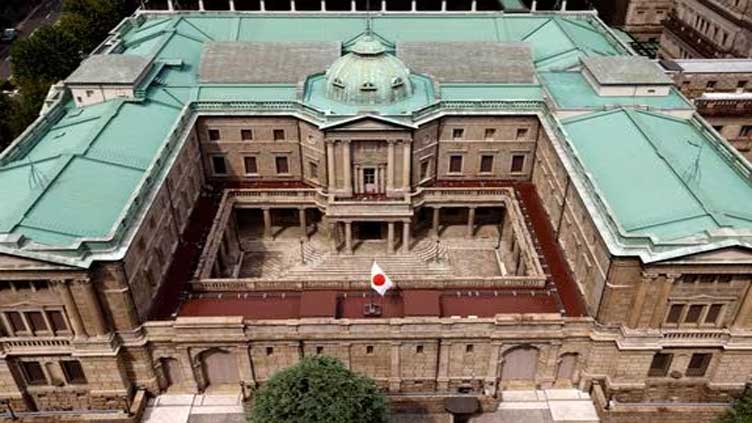BOJ policymaker rules out near-term policy shift

Business
BOJ policymaker rules out near-term policy shift
KOBE, Japan (Reuters) - Bank of Japan board member Toyoaki Nakamura said on Thursday the central bank must be cautious about phasing out its massive stimulus, playing down the chance of a near-term end to its negative interest rate policy.
The BOJ must take time to gauge whether Japan's companies and economic structure are changing from three decades of subdued inflation and wage growth, he said.
"It would be risky to change policy on the assumption that things will improve ahead in Japan's economy," Nakamura told a news conference after meeting business leaders in the western Japan city of Kobe.
"Now is not the time to consider shifting policy," he said, adding that it was important to maintain both yield curve control (YCC) and negative interest rates for the time being.
The remarks follow dovish comments from fellow board member Seiji Adachi on Wednesday warning against a premature exit from ultra-low interest rates, highlighting uncertainty on how soon the BOJ could roll back ultra-loose policy settings.
Nakamura said Japan's continued economic recovery, tight labour market and an increasing number of workers switching jobs are heightening the chance that wage growth will eventually exceed the pace of inflation.
But real wages fell from year-before levels for the 18th straight month in September as inflation hit 2.8% due largely to cost-push factors, he said, stressing the need to maintain ultra-loose policy for the time being.
"We haven't reached a stage where we can say with conviction that sustained, stable achievement of our 2% inflation target, accompanied by wage growth, is in sight," Nakamura said in a speech to business leaders in Kobe. "I think we need some more time before changing our easy monetary policy."
Nakamura declined to say how soon the BOJ could phase out stimulus when asked whether a shift could come next year.
But he said he would focus on the government's quarterly business expenditure surveys, wage data and other clues on whether corporate profitability is heightening.
A former executive of Hitachi Ltd (6501.T), Nakamura also warned of heightening uncertainty over the global outlook. Stubborn inflation and the impact of aggressive rate hikes could push the US economy into stagflation, while Europe is facing the risk of recession, he said.
BOJ officials have stressed the importance of next year's annual wage talks between companies and unions in determining whether strong wage hikes achieved this year would become a lasting trend, and allow the BOJ to phase out stimulus.
Under yield curve control (YCC), the BOJ guides the 10-year bond yield around 0%. It also applies a 0.1% charge on a small portion of excess reserves under its negative rate policy.
With inflation exceeding its 2% target for more than a year, many market players expect the BOJ to end both policies next year with some betting on a policy shift in January.
As rising inflation and global bond yields put upward pressure on Japanese long-term rates, the BOJ relaxed its grip on the 10-year yield in July and October in a move seen as a prelude to a full-fledged exit from ultra-loose policy.
Nakamura was the sole dissenter to the BOJ's decision in July and October on the view such a move must be put on hold until the companies' profitability increases further.


